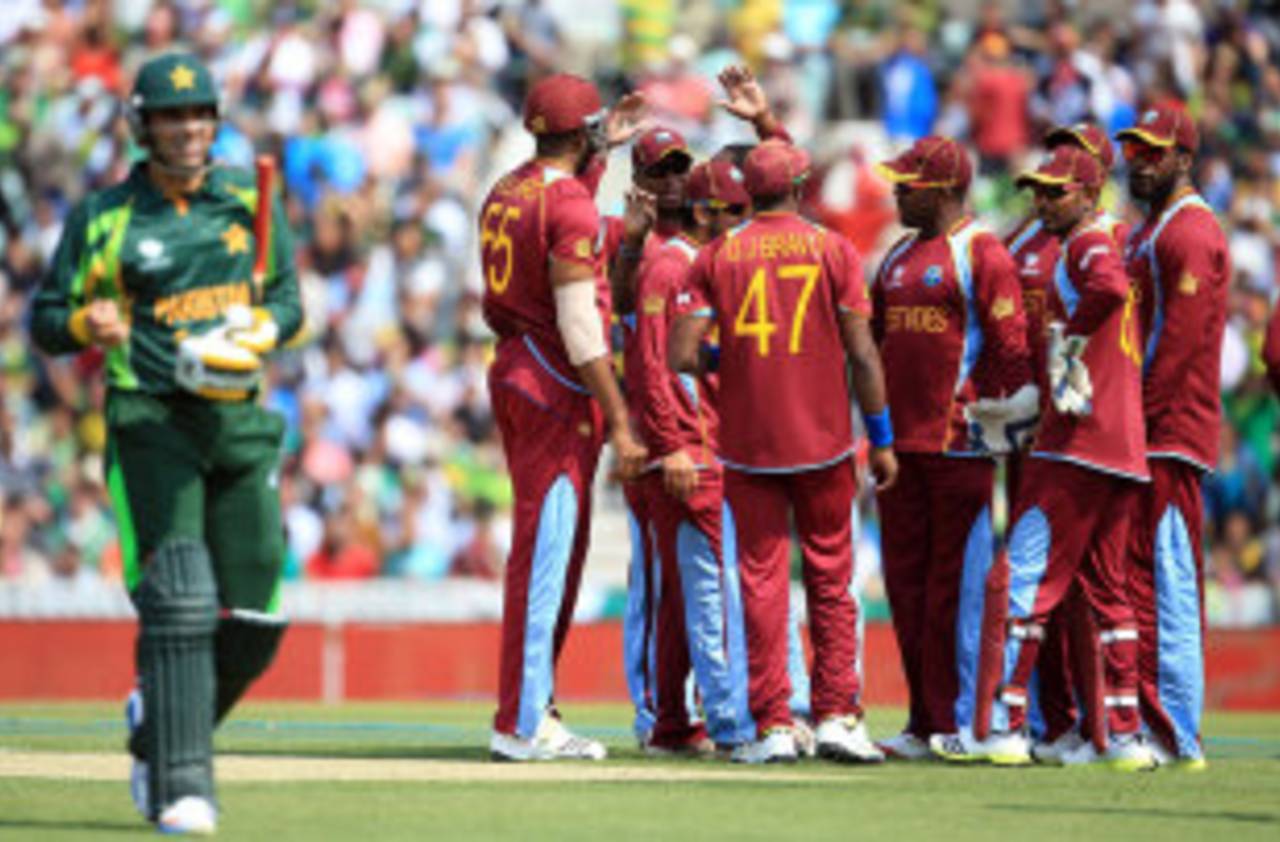Sins of omission are no sins at all
There is no "good samaritan law" requiring players to help umpires make their decisions, and punishing them for keeping quiet is absurd
Brydon Coverdale
13-Jul-2013

Michael Holding first raised the similarities on Friday and argued that if Ramdin was punished for a lie of omission, Broad should be too • Getty Images
Let's get one thing straight: Broad was wrong. Wrong, wrong, wrong. He shouldn't have done it. It was a misjudgement that cricket could have done without. How could he have suspended Denesh Ramdin for two ODIs for doing absolutely nothing?
Oh, you thought this was about Stuart? No, it's his father Chris who made the mistake. Stuart did nothing wrong. He just kept his mouth shut. Same as Ramdin. The only problem is that Chris Broad, in his role as ICC match referee, last month banned Ramdin for two games for a similar peccadillo.
Michael Holding first raised the similarities on Friday and argued that if Ramdin was punished for a lie of omission, Broad should be too. He's right to draw parallels, but the truth is Ramdin shouldn't have been sanctioned at all. By banning him, the ICC has set a precedent.
Of course, there are those who argue that a fielder claiming a catch he knows was not taken is a far greater crime than a batsman waiting for an umpire's decision. Perhaps that would be true - if the fielder did so. But go and search for the Ramdin footage on YouTube, and you'll see that he doesn't tell the umpire he caught the ball. He doesn't even appeal.
What appeared to happen during the Champions Trophy match between West Indies and Pakistan was that Misbah-ul-Haq edged behind off Kemar Roach, and Ramdin grasped the ball cleanly. Then, as his elbows hit the ground, it bounced out. There is clear footage of Ramdin picking up the ball off the ground.
Maybe the match officials viewed it as more serious than a batsman standing his ground because the spill happened simultaneously as the umpire Steve Davis raised his finger. But who is to say what went through Ramdin's mind? He was looking down at the time. How long do you have to control the ball for it to be considered a clean catch? Perhaps Ramdin thought Davis had taken the spill into account.
All of this happened in quick time. Ramdin went to join his team-mates in celebration, while the square-leg umpire queried the call with his on-field and off-field colleagues. The umpires made the decision, the players accepted it, before and after the reversal. As it should be.
But Ramdin was subsequently charged by the ICC with "conduct that is contrary to the spirit of the game". He pleaded not guilty and was slapped with a two-match ban by match referee Chris Broad.
"This is regarded as a serious offence as it is the responsibility of all players to act in the spirit of the game," Chris Broad said after handing down his decision. "I hope Mr Ramdin has learnt his lesson from this incident and that we will not see such behaviour by him or any player in the future."
But hang on. What did Ramdin do again? Nothing. He did nothing. He did not claim a catch he knew was not legal. He did not attempt to influence the umpire's decision. True, he did not inform the umpires that there was a chance the catch was not clean, but in an era of cameras and technology and highly professional umpires, why is that the responsibility of the fielder?
This is not Latham, Massachusetts, and this is not the Seinfeld finale. There is no "good samaritan law", no requirement for a player to offer unsolicited assistance to an umpire. Nor should there be.
The same goes for the Stuart Broad case. Like Ramdin, he allowed the umpire to make his decision without trying to sway him. Broad must have known he hit the ball. Instead of stepping in, he allowed the umpiring process to take its due course, just as batsmen have been doing since the dawn of Test cricket.
Had he explicitly told Aleem Dar he had not hit the ball, punishment would be justified. Had Ramdin told the umpires he had definitely completed the catch, sanctions would be reasonable. But that's not what happened, in either case.
Coming so close together, the two incidents cannot be viewed in isolation. Either the ICC wants players to adhere to some unrealistic honour system, or it doesn't. It can't ask of fielders what it won't ask of batsmen, and no player should be expected to intervene in an umpiring decision.
Yes, Broad got it badly wrong. Last month.
Brydon Coverdale is an assistant editor at ESPNcricinfo. He tweets here